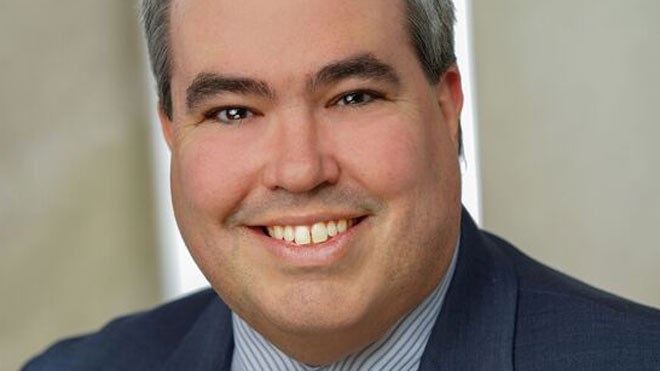If someone told you six months ago that a coronavirus pandemic would change almost everything you do every day out of fear for your health and those you care about, you might have laughed at them.
But now, as changes are really happening and Northerners are coping with the COVID-19 crisis, some key players in Northern Ontario's health care industry have said some of the changes might be here to stay.
For medical students that could mean more virtual learning with online classrooms. For medical professionals, it could mean more virtual care and online consultations.
At the six-month point in the pandemic, Village Media spoke with Dominic Giroux the president and CEO of Health Sciences North (HSN) in Sudbury, Northern Ontario's largest hospital, and also with Ray Hunt, the Chief Operating Officer for the Northern Ontario School of Medicine (NOSM). Both offered comments looking back on the past six months since the pandemic was declared as well as looking forward to the next six months.
On the health care front, Giroux said it was impossible to anticipate everything about a pandemic, but he said the hospital had protocols in place to give direction. Giroux gave credit to the Ministry of Health and Public Health Ontario for the early warning which he said came in January from Ontario's chief medical officer of health, outlining concerns being raised in China. It wasn't until March 11 that the World Health Organization formally declared the pandemic.
"So very quickly in mid-January we set up a pre-panmedic informal working group. We introduced passive screening with signage across our sites. We introduced active screening in the emergency department and with some emergency management services," Giroux said.
"It gave us the opportunity to review our inventory of personal protective equipment. And we reviewed our practices, protocols and policies. So we could not anticipate everything for sure but at least in those crucial weeks in January and February, it was very helpful.”
At the same time, not far away from HSN, at the medical school on the campus of Laurentian University, the wheels were in motion. Chief operating officer Ray Hunt said that NOSM had made preparations.
"Actually NOSM did have a pandemic plan," Hunt revealed. "It had been looked at a few months earlier but never in our wildest dreams did we think we would actually be using it. These documents get developed and they sort of get shelved and the dust settles."
He said an emergency response team was immediately formed under the leadership of NOSM Dean Dr. Sarita Verma, along with several key individuals at the medical school. He said they began the organizing processes, devising communications tactics and determining what programs and services that might be continued on campus.
"One of the good things about NOSM is our size. So there are many benefits to being a small medical school. You know not just from the education perspective of smaller class sizes, but in the case of the pandemic our ability and nimbleness, and the ability to pivot, which we did very quickly," said Hunt.
He said the medical school model is a distributed model, with two main campuses at Laurentian in Sudbury and Lakehead University in Thunder Bay along with dozens of remote learning sites at hospitals and clinics across Northern Ontario.
"Much of the education occurs virtually online so learners are placed in communities. They are attending lectures through OTN, the Ontario Telemedicine Network," Hunt explained. He added that while it was not too difficult to adapt to the remote virtual training system, it still took a lot of work.
"It was a nightmare at times to try to align and calibrate the things we were doing. It still required us to move. We have 250 employees that consist of staff and faculty in Sudbury and Thunder Bay, and we have 256 students any given year," said Hunt.
In scores of cases, employees had to set up home offices to continue their work.
"It was not a matter of people going home and just opening up their laptops and logging in," said Hunt. In some cases specific computers had to be moved into employee homes, which overwhelmed several online platforms. Several online meetings had lost connections he said.
"Our saviors of the day were the IT (Information Technology) staff for helping set people up at home," Hunt said. The IT workers also helped resolve problems relating to bandwidth and residential WiFi setups, he added.
Hunt said it was not business as usual, but the medical school and its employees have done everything they could to stay operational even though some online staff meetings featured "screaming children and dogs barking." Hunt said people have been flexible and productive.
"We haven't missed a beat. We have continued to be open. Medical education has continued. We have a mandate to train and create new physicians. The students will have their MD degree after four years."
Back at the hospital, Giroux said there were indeed challenges such as the cancellation of elective surgeries and imposing visitor restrictions. But on the other hand, said Giroux, there were many successes and things he said he was proud of.
"At Health Sciences North, we had zero transmission of COVID-19 among our health care workers. That was one of our key goals, one of our mantras at every internal webinar to really influence the decisions we were making around our safety protocol," he said.
HSN was also lauded by the Ontario Hospital Association for being one of the first in Ontario to create a COVID-19 assessment centre.
In the second part of this report (to be published at 2:45 p.m.), we will look at what Northerners can expect to see in the coming days and weeks as the world proceeds through the next six months of the pandemic.
